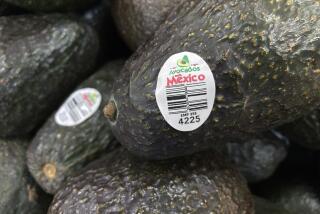Mexico Yanks <i> Maquiladora </i> Tax Status, Sparks Anger
Mexico has taken away the tax favor it has granted border maquiladora plants for years, and the plant operators are incensed.
“Everybody is up in arms about,” said Ned Dougherty, president of Pentex Enterprises in El Paso, Tex., which operates plants that assemble telephone equipment across the border in Juarez, Mexico.
The Mexican government has decided that as of Jan. 1, it will collect a corporate income tax the U.S.-owned assembly plants in Mexico previously weren’t required to pay, the Arizona Republic reported Friday.
Actual collection has yet to begin, and U.S. manufacturing executives are attempting to work out something with Mexico so collection never begins or at least is delayed.
Attorney Alex Gonzalez of Juarez told the Republic the tax has been on the books for years.
“They didn’t apply it as sort of a favor to the industry,” which employs hundreds of thousands of Mexican workers, Gonzalez said. “Now they’re taking away that special treatment.”
There are more than 1,000 maquiladoras in Mexico, most close to the border for easy access to the U.S. market.
Jesus Montoya, manager of the Samsonite luggage plant in Nogales, Mexico, on Arizona’s border, said the local maquiladora association has mobilized against the “transfer pricing” taxes.
His plant employs several hundred sewing-machine operators who produce cloth luggage for export to the United States.
The plants operate as Mexican corporations. Application of the tax means they now must report on their dealings with U.S. parent companies as if they were transactions between unrelated parties.
That increases the profits reported by the Mexican plants, and that in turn increases the corporate income taxes they pay to Mexico.
“We’re trying to negotiate with Mexican authorities for a delay or elimination of the tax, if possible,” Montoya said.
A typical maquiladora assembles U.S.-manufactured components into products that are sold in the United States.
Their labor-intensive operations, which typically pay the peso equivalent of $4 or $5 per day, have drawn tens of thousands of Mexicans to the border from impoverished regions in the interior, where work of any kind is sometimes impossible to find.
Gonzalez says the net effect isn’t that a U.S. corporation will pay increased taxes but that “it will be paying more taxes in Mexico and less in the United States.”
However, Dougherty said the new application will sharply increase his company’s administrative costs.
“We’re going to have to have a standing army of accountants to administer this,” he said.
Since profit-sharing payments Mexico’s law requires its corporations to make to their workers are based on 10 percent of a corporation’s profitability, the new tax application that results in reporting higher profits means workers will get higher payments.
“This is going to drive the maquiladora industry away from Mexico,” which competes with such areas as the Caribbean and Asia, Dougherty said. He said he already is considering other countries as alternatives.
More to Read
Sign up for Essential California
The most important California stories and recommendations in your inbox every morning.
You may occasionally receive promotional content from the Los Angeles Times.










